Common Nightingale, Nachtegaal, Nachtigall, Rouxinol-comum, Ruiseñor
Spotted at Monte Horizonte in the Alentejo region of Portugal. Nightingale sound
The Nightingale (Luscinia megarhynchos), also known as Rufous and Common Nightingale, is a small passerine bird that was formerly classed as a member of the thrush family Turdidae, but is now more generally considered to be an Old World flycatcher, Muscicapidae. It belongs to a group of more terrestrial species, often called chats.
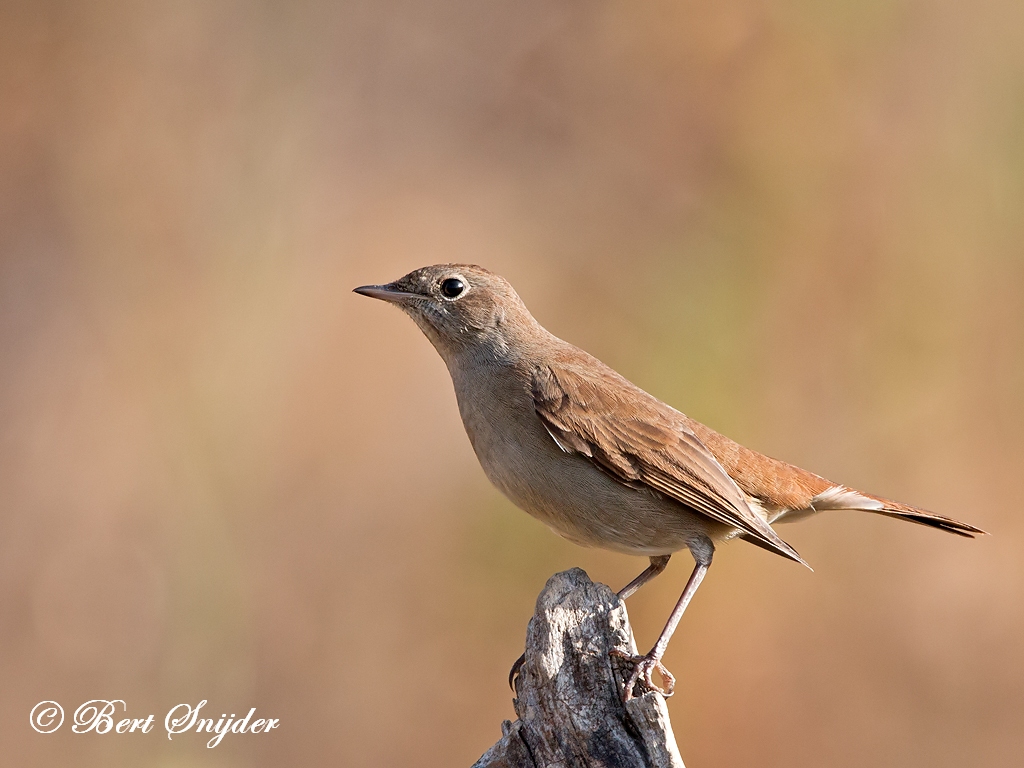
More photos at the bottom of this page:
It is a migratory insectivorous species breeding in forest and scrub in Europe and south-west Asia, but is not found naturally in the Americas. The distribution is more southerly than the very closely related Thrush Nightingale Luscinia luscinia. It nests on the ground within or next to dense bushes. It winters in southern Africa. At least in the Rhineland (Germany), the breeding habitat of nightingales agrees with a number of geographical parameters.
The nightingale is slightly larger than the European Robin, at 15–16.5 cm (5.9–6.5 in) length. It is plain brown above except for the reddish tail. It is buff to white below. Sexes are similar. The eastern subspecies L. m. hafizi and L. m. africana have paler upperparts and a stronger face-pattern, including a pale supercilium.
Nightingales are named so because they frequently sing at night as well as during the day. The name has been used for well over 1,000 years, being highly recognizable even in its Anglo-Saxon form – ‘nihtingale’. It means ‘night songstress’.
Early writers assumed the female sang when it is in fact the male. The song is loud, with an impressive range of whistles, trills and gurgles. Its song is particularly noticeable at night because few other birds are singing. This is why its name includes “night” in several languages.
Only unpaired males sing regularly at night, and nocturnal song is likely to serve attracting a mate. Singing at dawn, during the hour before sunrise, is assumed to be important in defending the bird’s territory. Nightingales sing even more loudly in urban or near-urban environments, in order to overcome the background noise.
The most characteristic feature of the song is a loud whistling crescendo, absent from the song of Thrush Nightingale. It has a frog-like alarm call.
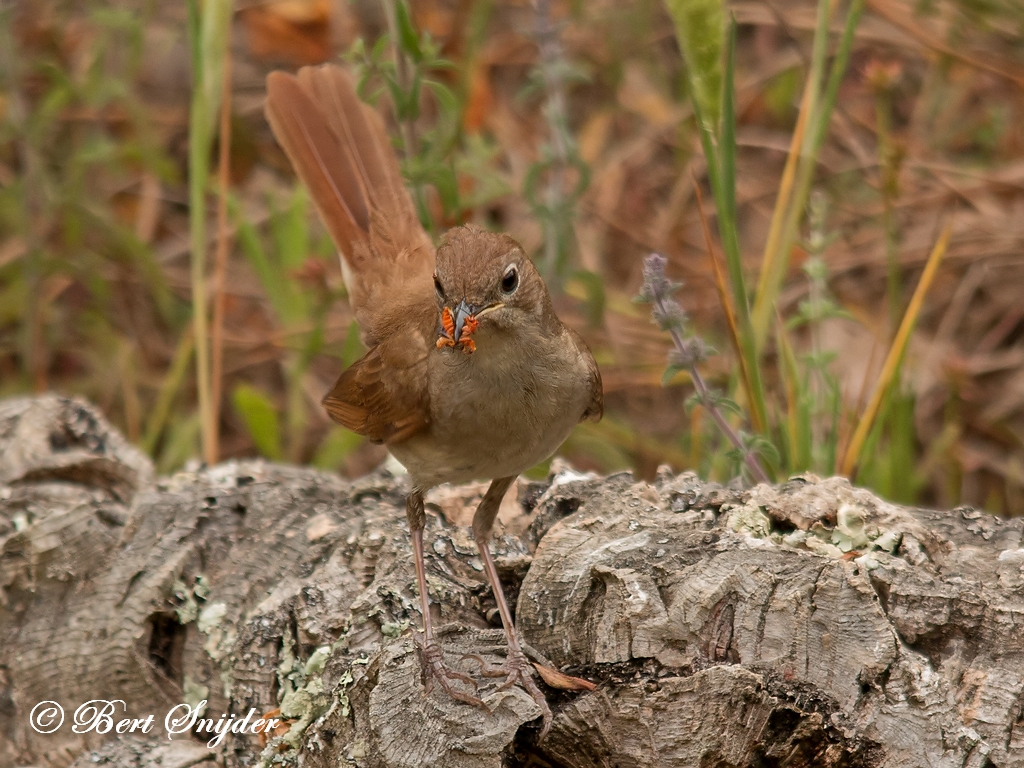
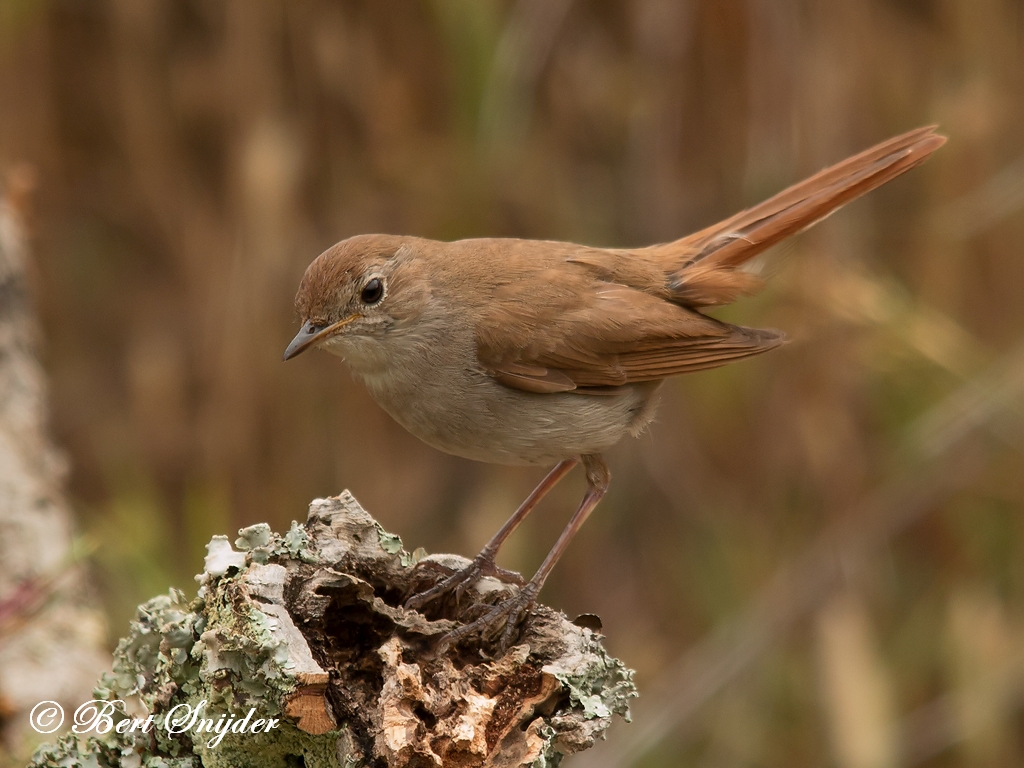
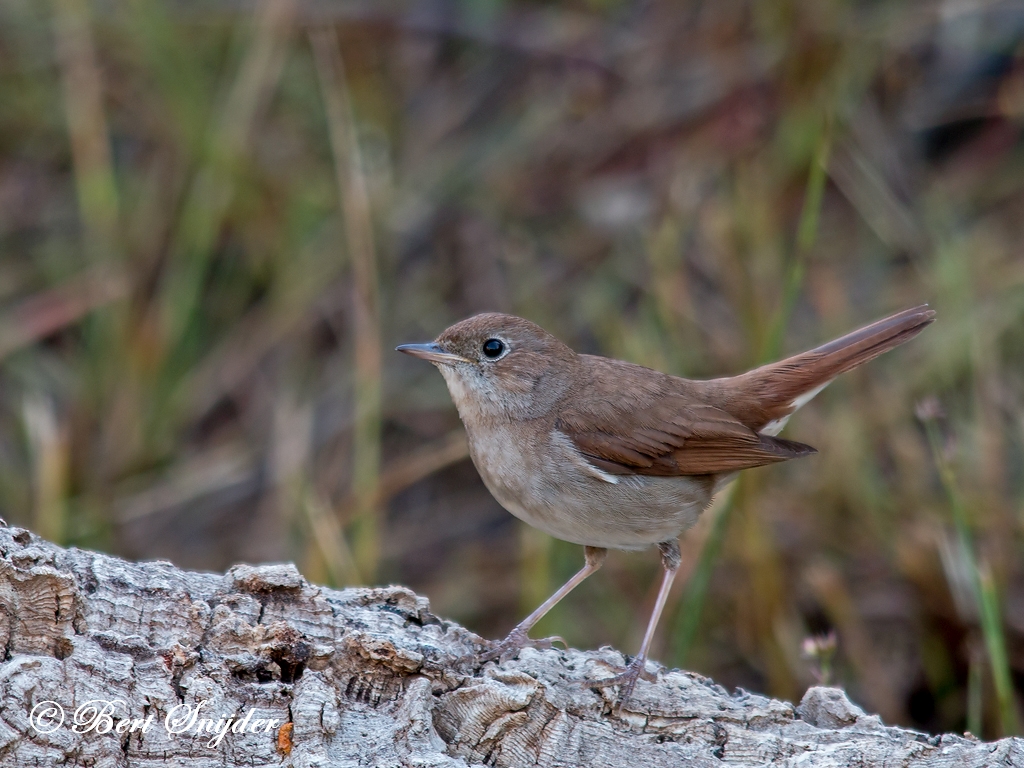
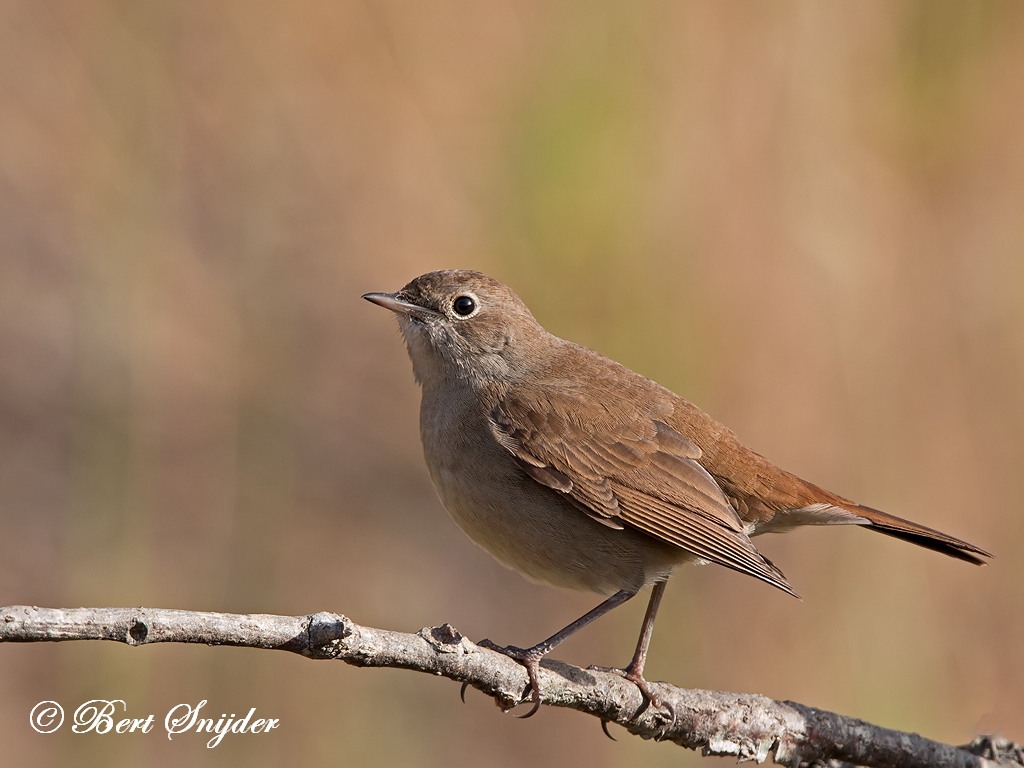
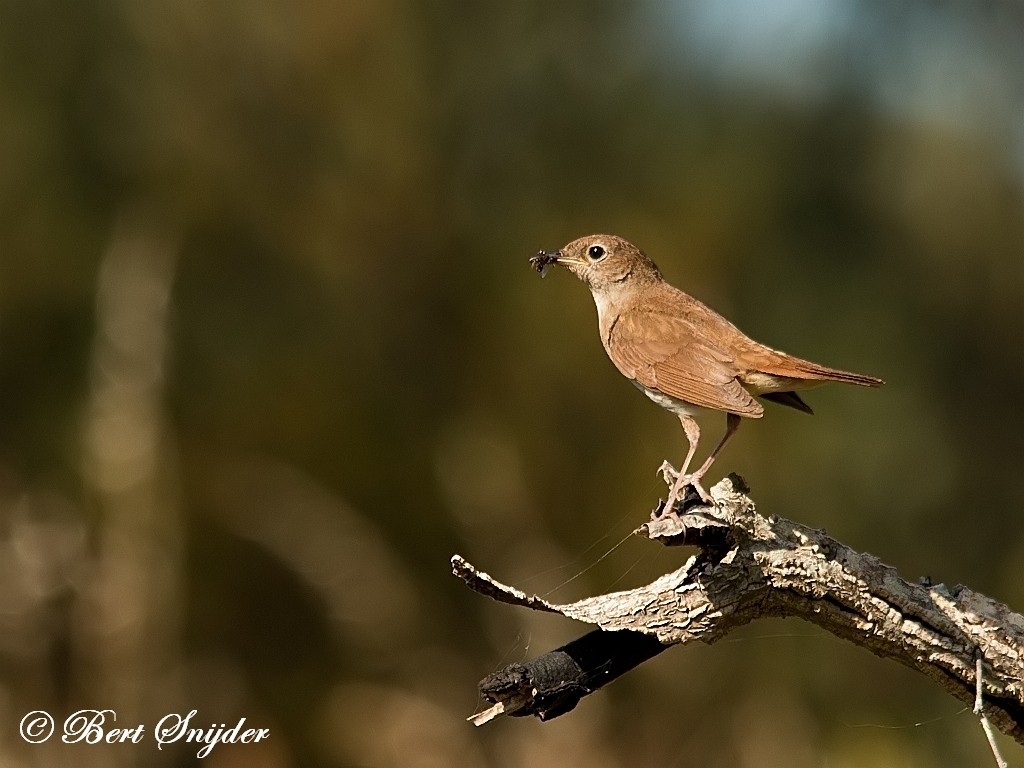
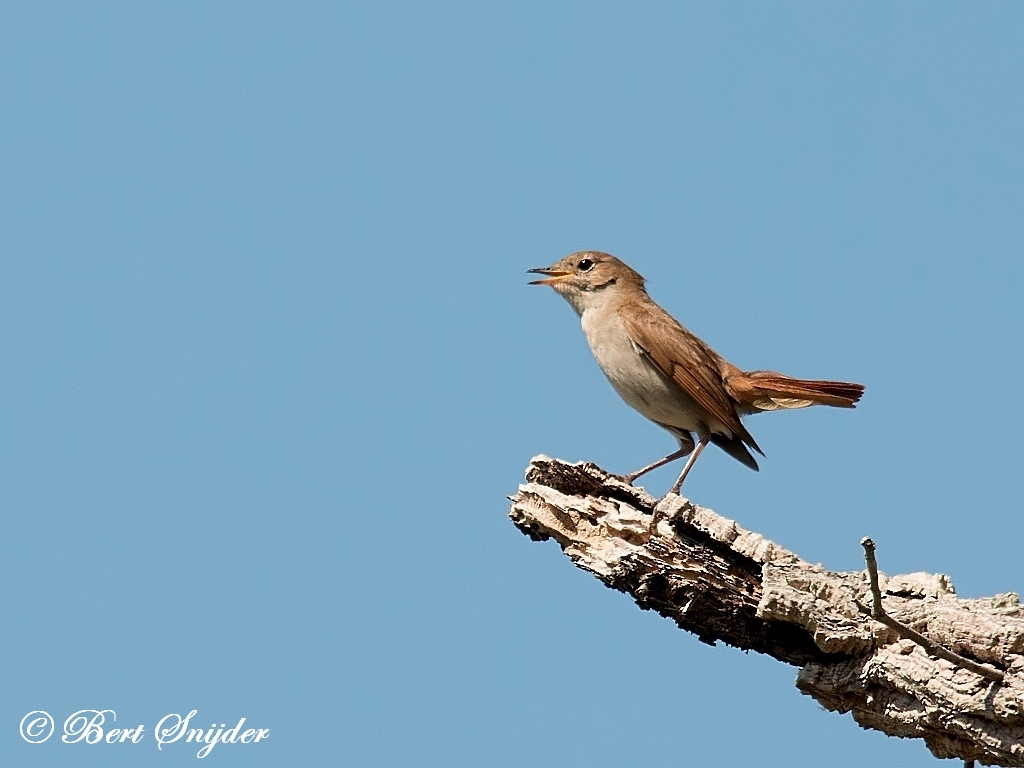
Other synonyms:
Asturian: Reiseñor
Breton: An eostig kuzh, eostig
Catalan: Rossinyol
Catalan (Balears): Rossinyol
Czech: slavík, Slavík obecný
Welsh: eos
Danish: nattergal, Sydlig nattergal
German: Nachtigall
English: Common Nightingale, European Nightingale, Nightingale, Rufous Nightingale
Esperanto: najtingalo, suda najtingalo
Spanish: Ruiseñor, Ruiseñor Comun, Ruiseñor Común
Basque: Rossinyol , urretxindor, Urretxindorra
Finnish: Etelänsatakieli, satakieli
French: rossignol, Rossignol philomèle
Frisian: geal
Irish: filiméala, reiseñor
Gaelic: Spideag
Galician: Rossinyol , Rousinol
Manx: spittag oie
Croatian: Slavuj
Hungarian: Fülemüle
Icelandic: Næturgali
Italian: Usignolo, Usignolo comune
Japanese: sayonakidori
Cornish: eos
Latin: Erithacus megarhynchos, Luscinia megarhynchos
Ladino: roscignol
Dutch: Nachtegaal
Norwegian: nattergal, Sørlig nattergal, Sørnattergal
Occitan: rossinhòl
Portuguese: rouxinol, Rouxinol-comum
Romansh: luschaina
Romanian: privighetoare
Romany: chirikli-ratiaki, chiriklo-ratiako
Russian: solovej
Sardinian: arrassanajolu, arrissiuolu, beranile, cirulicorda, conchiepara, conchinigheddu, filomena, passirillanti, pilloni de beranu, puzone de riu, rusinzolu, srubiarriu
Scots: spideag
Slovak: slávik, slávik krovinový, slávik obycajný
Slovenian: mali slavec, slavec
Albanian: bilbili
Swedish: näktergal, Sydnäktergal
Swahili: Kurumbiza wa Ulaya
Turkmen: bülbül
Turkish: Bülbül
Travel Birdwatching Holiday Alentejo, Vacation Portugal for birders guided birdwatching Tours and Trips.